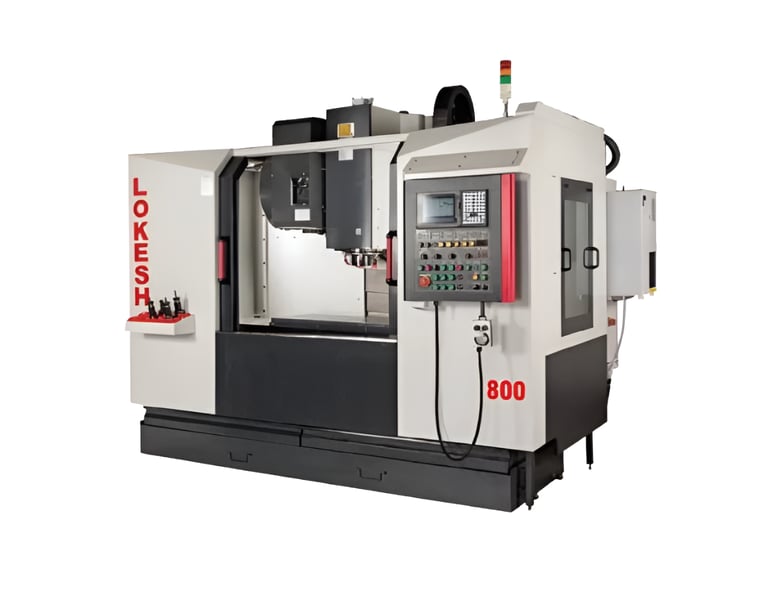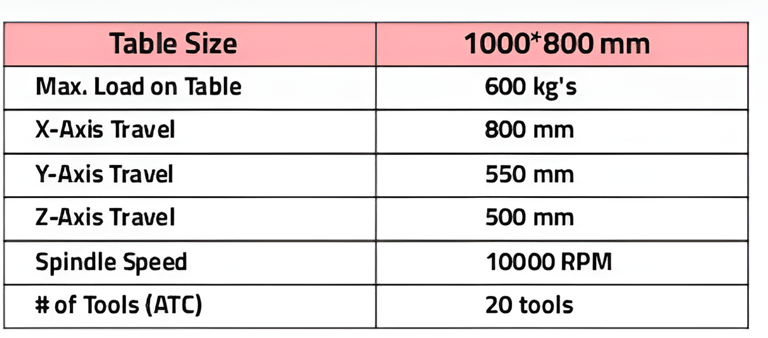LML -Vertical Milling Machine
Precision Machining with Tatva Tec's LML Vertical Milling Machine
At Tatva Tec, located in Bengaluru, Karnataka, India, our commitment to precision engineering is epitomized by our advanced machinery, including the highly efficient LML Vertical Milling Machine. This cornerstone equipment allows us to execute a wide array of complex machining operations with exceptional accuracy and versatility, forming a vital part of our comprehensive service offerings.


Key Benefits
The integration of the LML Vertical Milling Machine into Tatva Tec's operations brings several significant advantages:
Exceptional Precision and Accuracy: The vertical design and sturdy construction minimize vibrations, allowing for tight tolerances and highly accurate cuts, crucial for critical components.
Versatility in Operations: It's capable of performing a wide range of machining operations, including face milling, end milling, drilling, boring, tapping, and slotting, reducing the need for multiple machine setups.
Efficiency in Production: The machine's design allows for excellent visibility of the cutting process, enabling our skilled operators to monitor and optimize machining parameters for efficient material removal and reduced cycle times.
Cost-Effectiveness: Vertical milling machines are generally more economical to operate and maintain compared to some other complex machining centers, contributing to cost-effective solutions for our clients.
Ideal for Intricate Work: The vertical orientation is particularly beneficial for creating detailed and complex features, pockets, and contours on workpieces.
Applications
The capabilities of our LML Vertical Milling Machine make it indispensable across a wide range of industries and applications, including:
Die and Mould Manufacturing: Producing intricate cavities, cores, and other components for dies and moulds with high precision.
Jigs and Fixture Production: Machining components for custom-designed jigs and fixtures that demand accuracy for repeatable manufacturing processes.
Prototype Development: Ideal for creating precise prototypes and one-off parts before mass production.
General Engineering: Performing a variety of machining tasks for general engineering components, machinery parts, and specialized tools.
Automotive and Aerospace Components: Manufacturing parts that require tight tolerances and complex shapes in these demanding sectors.
Specifications


